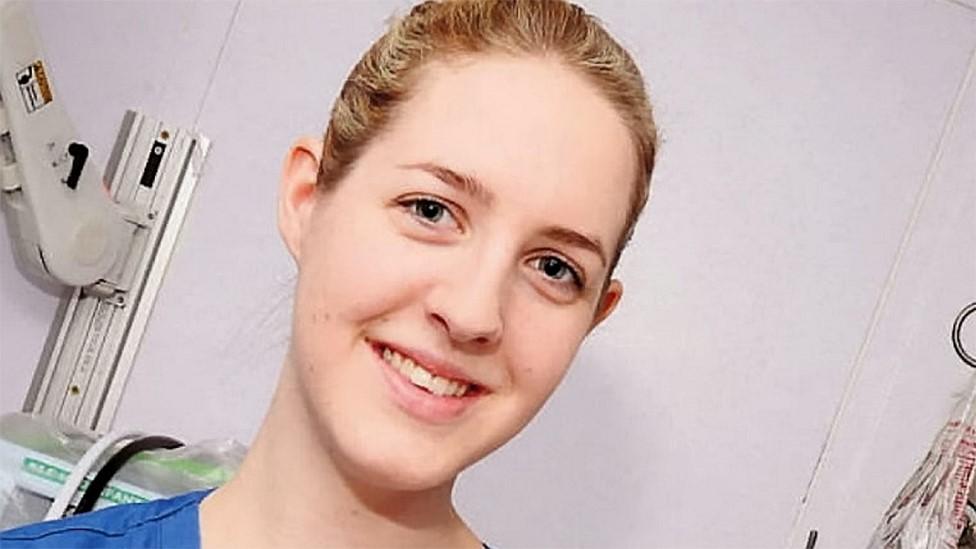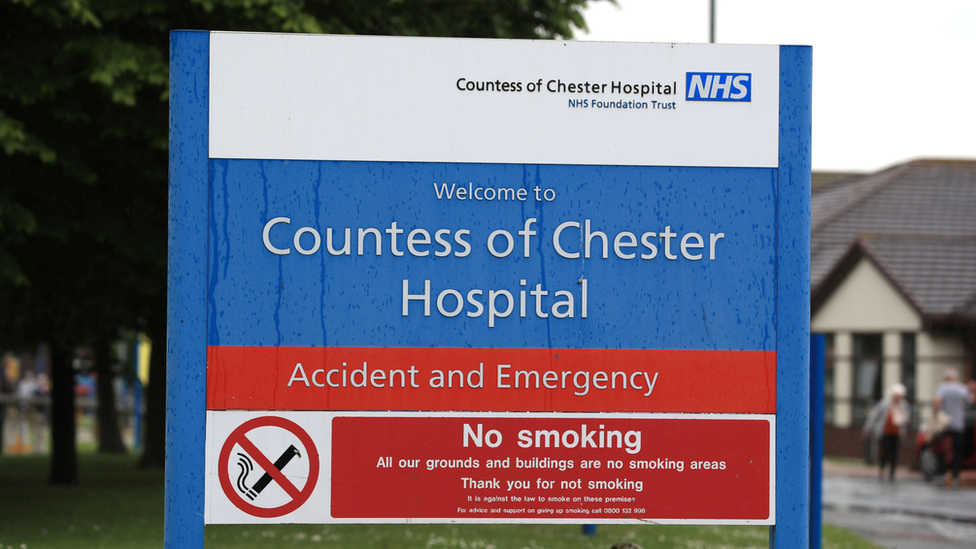Lucy Letby trial: Senior doctor 'surprised' by emergency call-outs
- Published

Lucy Letby is accused of murdering seven babies and trying to kill 10 others
A senior doctor has said she was "very surprised" to receive two emergency call-outs to a previously "stable" baby on the morning of the girl's death.
It is alleged that nurse Lucy Letby injected air into the bloodstream of the baby, known as Child D, while she was at the Countess of Chester Hospital in June 2015.
Ms Letby is charged with murdering seven babies and attempting to murder 10 others between 2015 and 2016.
Ms Letby, 32, denies 22 charges.
Jurors at her Manchester Crown Court trial have been hearing evidence in relation to Ms Letby's third alleged murder victim.
Consultant paediatrician Dr Elizabeth Newby explained that the baby had been in a stable condition before she collapsed in the early hours of the morning.
Dr Newby told the court that Child D needed assistance with her breathing shortly after she was born but was clinically stable the following day.
She later collapsed three times in the early hours of 22 June and stopped breathing on the final occasion.
Medics were unable to resuscitate her.
Dr Newby told jurors she was "very surprised" to get a "crash-call" to Child D that night.
She said Child D had not appeared to be at the point of death, adding: "I admit these things can happen, but it was not what we expected that night to happen."
Dr Newby noted, as had several other doctors and nurses, that Child D suffered "unusual" skin discolourations in the hours before her death.

The nurse worked on the neonatal ward at Countess of Chester Hospital
"We didn't know what to make of them, to be honest. It was quite unusual. We felt it must be related to infection", she said.
The court has previously heard that Child D's mother had her waters break 60 hours before giving birth, and that Child D was, at birth, "floppy" and at risk of collapse.
Cross-examined by Ben Myers KC, defending Ms Letby, Dr Newby agreed that after the birth, Child D's "condition was consistent with an infection of some sort".
She agreed when Mr Myers said: "It can happen that a baby who is unwell can have resistance to infection, to keep running at a certain level, then deteriorate very rapidly."
The court later heard from nurse Kathryn Percival-Calderbank, a former colleague of Ms Lebty.
Mrs Percival-Calderbank told the jury she has had "sleepless nights" over incidents at the Countess of Chester Hospital.
Recalling a night shift in which Ms Letby allegedly administered a fatal amount of air into the bloodstream of Child D, she said: "The baby's monitor was showing she was desaturating and her heart rate had dropped."
Asked by prosecutor Philip Astbury if she noticed anything while assisting Child D, Mrs Percival-Calderbank said: "There was a rash on her trunk and arms.
"It was on her body from the chest downwards.
"It was not like a normal rash that you would know if a baby was becoming septic. The blood vessels tend to more bluey.
"This seemed to be a largely mosaic-type rash and it was a reddy-brown colouring."
The trial continues.

Why not follow BBC North West on Facebook, external, Twitter, external and Instagram, external? You can also send story ideas to northwest.newsonline@bbc.co.uk, external
Related topics
- Published4 November 2022

- Published3 November 2022

- Published2 November 2022

- Published28 October 2022

- Published27 October 2022
